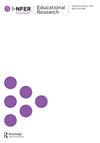专业学习网络:概念模型和研究机会
IF 2.6
3区 教育学
Q1 EDUCATION & EDUCATIONAL RESEARCH
引用次数: 8
摘要
背景:教育工作者的专业学习网络(pln)代表了一种实现学校持续改进的有前途的方法。与此同时,该领域的一系列研究,包括一些系统综述和荟萃分析,报告了多种概念和方法上的挑战,或者充其量是混合的结果。因此,这篇理论讨论论文的目的是,首先,通过结合和反思他们的发现和建议,来综合和联系以往专注于专业学习社区和网络的研究。其次,我们的目标是为该领域的方法论发展做出贡献,以便提出能够将pln中发生的事情与学生结果变化联系起来的研究。对于后者,我们还将利用该领域在教育中使用大数据方面的新见解。我们提出了一个概念模型,定义了规划规划、制定过程变量和影响因素,提出了我们的行动理论,说明了规划规划如何有效。其次,我们讨论了在研究方法、研究设计和测量方面研究PLN影响的挑战和建议。本讨论包括考虑使用大数据来帮助分析不同类型PLN研究数据中的模式和之间的关系,从而更加高效和可靠。我们需要更高效、更有效地定义和研究公共规划方案的过程和效果,以支持公共规划方案实现增加教师学习、改善学生成绩、最终实现可持续的大规模学校改善的承诺。本文章由计算机程序翻译,如有差异,请以英文原文为准。
Professional learning networks: a conceptual model and research opportunities
ABSTRACT Background Professional Learning Networks (PLNs) of educators represent a promising approach to achieving continuous school improvement. At the same time, a range of studies in this area, including several systematic reviews and meta-analyses, report multiple conceptual and methodological challenges, or, at best, mixed results. Purpose and sources The aim of this theoretical discussion paper, therefore, is to seek, first, to synthesise and connect to previous studies focused on professional learning communities and networks by combining and reflecting on their findings and recommendations. Second, we aim to contribute to the methodological development of the field in order to propose research that can link what happens in PLNs to changes in outcomes for students. For the latter, we will also make use of new insights from the field with regard to the use of big data in education. Main argument We propose a conceptual model of what defines PLNs, enactment process variables, and influencing factors, presenting our theory-of-action for how PLNs can be effective. Second, we discuss challenges and recommendations in studying PLN impact regarding research approach, research design and measurement. This discussion includes consideration of the use of big data to help to make the analysis of patterns in, and relations between, different types of PLN research data more efficient and reliable. Conclusion We need to define and study the processes and effects of PLNs more efficiently and effectively, to support PLNs in fulfilling the promise of increased teacher learning, improved outcomes for students, and, ultimately, sustainable school improvement at scale.
求助全文
通过发布文献求助,成功后即可免费获取论文全文。
去求助
来源期刊

Educational Research
EDUCATION & EDUCATIONAL RESEARCH-
CiteScore
4.00
自引率
2.90%
发文量
0
期刊介绍:
Educational Research, the journal of the National Foundation for Educational Research (NFER), was established in 1958. Drawing upon research projects in universities and research centres worldwide, it is the leading international forum for informed thinking on issues of contemporary concern in education. The journal is of interest to academics, researchers and those people concerned with mediating research findings to policy makers and practitioners. Educational Research has a broad scope and contains research studies, reviews of research, discussion pieces, short reports and book reviews in all areas of the education field.
 求助内容:
求助内容: 应助结果提醒方式:
应助结果提醒方式:


